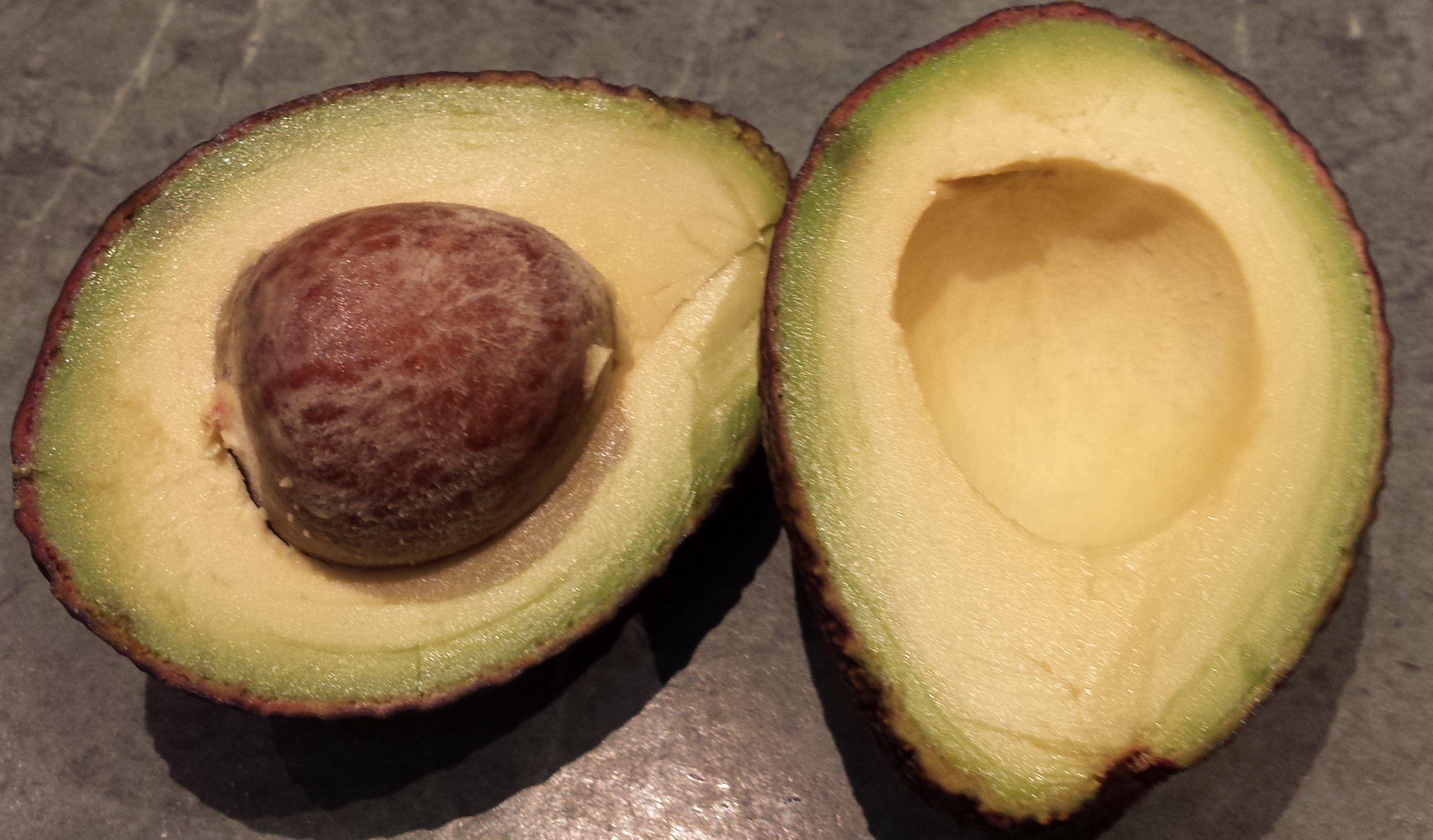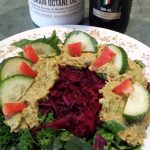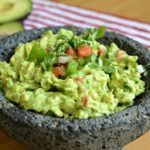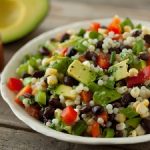Nine Proven Benefits of Avocado
Written by: Mavis Carruthers ND
Adapted from Health Line article Written by Kris Gunnars, BSc on June 4, 2017
1. Are avocados fattening?
Based on 100gm serving, a whole avocado comes with:
- 160 calories,
- 2 grams of protein and
- 15 grams of healthy fat
Although it contains 9 grams of carbs, 7 of those are fibre so there are only 2 “net” carbs, making this a low-carb friendly plant food.
Avocados do not contain any cholesterol or sodium, and are low in saturated fat, not to mention all these other nutrients:
- Vitamin K: 26% of the RDA.
- Folate: 20% of the RDA.
- Vitamin C: 17% of the RDA.
- Potassium: 14% of the RDA.
- Vitamin B5: 14% of the RDA.
- Vitamin B6: 13% of the RDA.
- Vitamin E: 10% of the RDA.
- Then it contains small amounts of Magnesium, Manganese, Copper, Iron, Zinc, Phosphorous, Vitamin A, B1 (Thiamine), B2 (Riboflavin) and B3 (Niacin).
It is loaded with healthy fats, fibre and various important nutrients. Consuming avocados several times a week has helped me maintain a healthy weight.
2. Is the potassium in avocado important?
Bananas are touted as the highest potassium source. In fact, avocado contains 14% of the RDA compared with 10% in bananas in a 100gm serving.
Several studies show that having a high potassium intake is linked to reduced blood pressure, a major risk factor for heart attacks, strokes and kidney failure.
3. How is the high fat content in avocado beneficial to health?
The majority of the fat in avocado is oleic acid, a monosaturated, omega 9 essential fatty acid, also found in olive oil. Whilst nutritionist warn that we are getting too much omega 9 in our diet, avocado is a healthier alternative to cheeses and butters.
The fats in avocado are also pretty resistant to heat-induced oxidation, making avocado oil a healthy and safe choice for cooking.
4. Do avocados contain fibre?
There are two forms of fibre: soluble and insoluble:
- Soluble fibre feeds the friendly bacteria in the gut (small intestine). This aids healthy colon care, digestion & absorption of nutrients from foods.
- Insoluble fibre adds bulk to the stool, aiding ease of elimination.
- About 25% of the fibre in avocado is soluble, while 75% is insoluble.
Some of the benefits of fibre to the body are weight management and metabolic health
5. How can avocados influence triglycerides, low density lipoprotein and high density lipoprotein (cholesterol)?
Heart disease is the most common cause of death in the world. It is known that several blood markers are linked to an increased risk. This includes cholesterol, triglycerides, inflammatory markers, blood pressure and various others.
The effects of avocado on some of these risk factors has been studied in 8 human controlled trials. These are studies where people are split into groups… one group is instructed to eat avocados, while the other is not. Then researchers see what happens to their blood markers over time.
These studies have shown that avocados can:
- Reduce total cholesterol levels significantly.
- Reduce blood triglycerides by up to 20%.
- Lower LDL cholesterol by up to 22%.
- Increase HDL (the “good”) cholesterol by up to 11%.
Another study showed that avocado can influence reduced blood sugar levels in non-insulin dependent diabetes mellitus (NIDDM)
One of the studies showed that including avocado in a low-fat vegetarian diet led to improvements in the cholesterol profile.
Unfortunately, all of the human studies were small (13-37 subjects) and short-term (1-4 weeks), but the results were impressive nonetheless.
6. Can you be healthier eating avocados regularly?
One dietary survey found that people who ate avocados had a much higher nutrient intake and had a lower risk of metabolic syndrome.
This does not mean that avocados caused people to be healthier.
My personal experience is that an avocado a day, five days a week, over the past 12 months has reduced, then stabilised, my belly fat, BMI and sugar cravings. Is this the only healthy habit I have? No! There are many other healthy fats/oils I consume over the week that would contribute to my healthy metabolism.
7. Does eating avocados help absorb other nutrients and prevent chronic disease?
There are vitamins that are ‘fat soluble’ – Vitamins A, D, E & K, that are more easily up taken in the presence of healthy oils. Some other antioxidants are also reliant on fats to be absorbed.
So when you add an avocado to a fresh salad, you are dramatically increasing your absorption full of valuable antioxidants in your salad that may otherwise be wasted. We are so familiar with adding olive oil to our salads…Antioxidants are the key to preventing free radical damage of our cells that results in long term, or chronic, disease.
8. What antioxidants in avocados assist with eye health?
Not only do avocados increase antioxidant absorption from other foods, they are also high in antioxidants themselves. This includes nutrients called Lutein and Zeaxanthin, which are incredibly important for eye health, including macular degeneration.
I was so excited when I discovered this, as I have a family history of macular degeneration and subsequent blindness in old age. When I had my retina examined recently by an ophthalmologist, he stated my macula was in perfect health…at the age of 65!
Studies show that these antioxidants also help reduce the risk of cataracts.
9. Where can avocados assist with weight loss?
There are some studies that support this as being a positive. This appears to relate to the high fibre content, high water content and the valuable oleic acid oils we have spoken of already.
The effect of consuming the avocado with a salad results in increase uptake of antioxidants, better digestion, increased satiety and loss of sugar cravings. That has certainly been my experience too.
How can avocados be incorporated into our eating lifestyle?
My favourite – bed of greens, grated beetroot and mashed avocado with some protein (fish mostly), decorated with cucumber & re capsicum. Add balsamic vinegar to the greens & edible oil (fractionated coconut oil as Brain Octane).
As guacamole dip – make you own adding lemon juice, crushed garlic, spices and sea salt.
Dice or slice and arrange attractively with rest of the meal. Make sure to include the dark green flesh closest to the skin as you scoop out the avocado.
Great for toddlers as they start eating solids.






